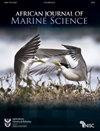评估参加海洋学研究所合作鱼类标签项目对垂钓者态度和行为的影响
IF 1.4
4区 生物学
Q3 MARINE & FRESHWATER BIOLOGY
引用次数: 0
摘要
科学成果证明了海洋研究所的合作鱼类标记项目(ORI-CFTP)对生物和渔业研究的价值,根据ORI-CFTP的数据发表了95多篇手稿。本研究从参与钓鱼者的角度对该项目进行了回顾。ORI-CFTP共有267名成员对一项在线调查做出了回应,该调查旨在收集以下数据:标记成员的概况、他们喜欢的沟通方式、对鱼类标记和鱼类保护的总体态度、自成为该项目成员以来钓鱼行为的变化,以及对ORI-CFTP继续开展的支持。结果表明,ORI-CFTP确实为改善南非海洋娱乐垂钓者的保护道德和行为做出了相当大的贡献。通过ORI-CFTP改善与钓鱼者(包括钓鱼者和非钓鱼者)的沟通,有可能向更广泛的钓鱼社区扩大急需的保护信息,从而提高环境意识。就如何改进ORI-CFTP和其他与钓鱼相关的公民科学项目提出了建议。本文章由计算机程序翻译,如有差异,请以英文原文为准。
An assessment of the impact of participation in the Oceanographic Research Institute’s Cooperative Fish Tagging Project on angler attitudes and behaviour
Scientific output has proven the value of the Oceanographic Research Institute’s Cooperative Fish Tagging Project (ORI-CFTP) to biological and fisheries research, with more than 95 published manuscripts based on data from the ORI-CFTP. This study reviews the project from the perspective of participating anglers. A total of 267 members of the ORI-CFTP responded to an online survey designed to gather data on the profile of tagging members, their preferred methods of communication, attitudes towards fish tagging and fish conservation in general, changes in angling behaviour since becoming a member of the project, and support for the continuation of the ORI-CFTP. The results reveal that the ORI-CFTP has indeed made a considerable contribution towards improving the conservation ethics and behaviour of marine recreational anglers in South Africa. Improved communication with anglers— both taggers and non-taggers—through the ORI-CFTP has the potential to amplify much-needed conservation information to the broader angling community and thereby enhance environmental awareness. Recommendations on how to improve the ORI-CFTP and other angling-related citizen science projects are provided.
求助全文
通过发布文献求助,成功后即可免费获取论文全文。
去求助
来源期刊

African Journal of Marine Science
生物-海洋与淡水生物学
CiteScore
2.60
自引率
16.70%
发文量
17
审稿时长
6-12 weeks
期刊介绍:
The African (formerly South African) Journal of Marine Science provides an international forum for the publication of original scientific contributions or critical reviews, involving oceanic, shelf or estuarine waters, inclusive of oceanography, studies of organisms and their habitats, and aquaculture. Papers on the conservation and management of living resources, relevant social science and governance, or new techniques, are all welcomed, as are those that integrate different disciplines. Priority will be given to rigorous, question-driven research, rather than descriptive research. Contributions from African waters, including the Southern Ocean, are particularly encouraged, although not to the exclusion of those from elsewhere that have relevance to the African context. Submissions may take the form of a paper or a short communication. The journal aims to achieve a balanced representation of subject areas but also publishes proceedings of symposia in dedicated issues, as well as guest-edited suites on thematic topics in regular issues.
 求助内容:
求助内容: 应助结果提醒方式:
应助结果提醒方式:


